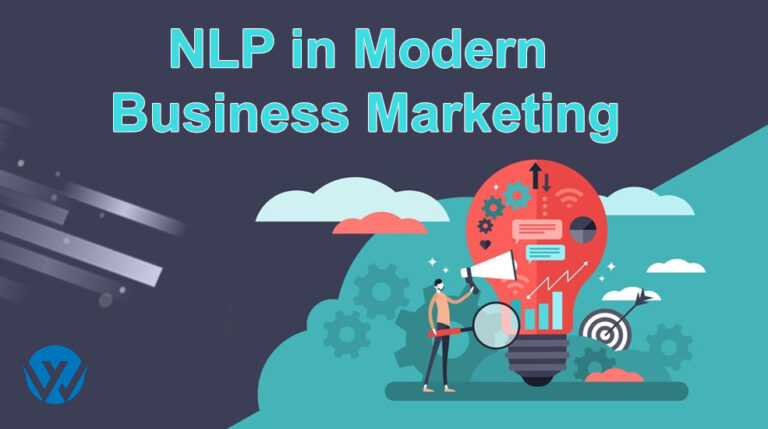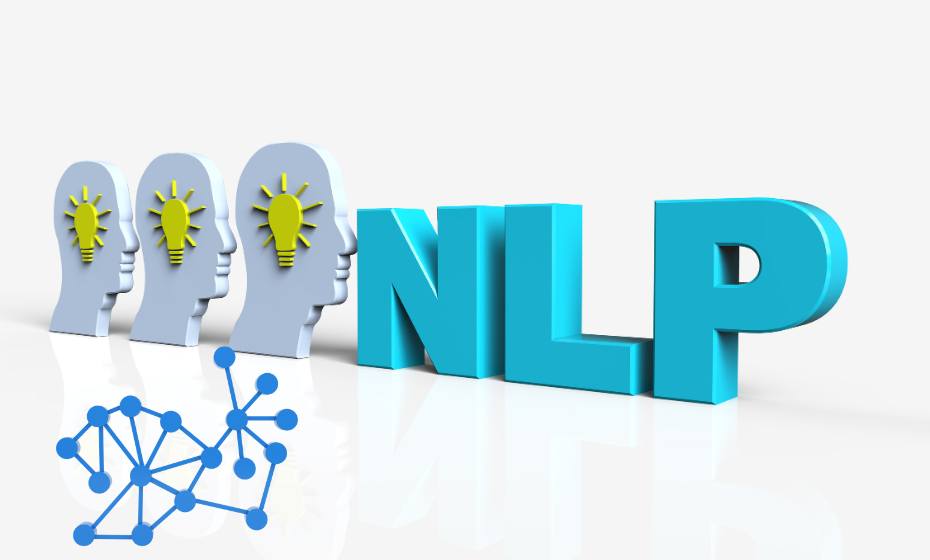NLP stands for Natural Language Processing. NLP is based on specific Artificial Intelligence (AI), enabling computers to interact with humans in natural language. The Natural Language Processing (NLP) field focuses on developing machines that can spontaneously and naturally talk to humans. NLP in marketing is in the initial stage, but NLP technology has multiple applications in business marketing. AI transforms business marketing strategies through the most advanced AI solutions and tools. This article will deeply discuss the role of NLP in business marketing.
NLP and Business Marketing:
NLP stands for Natural Language Processing where the text of given words or sentences is transformed into a machine-understandable representation. It is the area of artificial intelligence and natural language processing that aims and trains computers to understand, interpret, and produce speech in a natural and meaningful way to the human ear.
The contribution of NLP to the marketing of companies is enormous since it helps get the needed information, understand the sentiments of the customers, automate tasks, and also to personalize the interaction within the business.
Use of NLP in Modern Business Marketing:
NLP offers multiple business marketing applications, including AI Chatbots, Marketing Intelligence, Social Media Analytics, Sentiment Analysis, Recruiting, Analysis of Surveys, and target advertisement. Detailed applications of NLP in business marketing are stated below:
AI Chatbots:
AI chatbots are based on natural language processing and are widely used in online business. These AI chatbots can interact with humans naturally and can be used to resolve customers’ queries without any human interference. AI chatbots help improve customers’ experience and satisfaction levels by observing their personalities and offering solutions accordingly. AI chatbots collect data and improve their knowledge base to be more realistic and close to human nature.
Marketing Intelligence:
Natural Language Processing, like other AI and ML, and Deep Learning, can train machines to handle and process data to generate marketing intelligence. NLP integrates with AI technologies and tools, enabling organizations to track and analyze real-time data. It improves response and query resolution time.
Its ability to learn consumer behavior and preferences also leads to improved customer interaction and customer retention. It enables the organization to process available data, understand customer behavior, predict expected trends, and offer customized solutions.
Social Media Analytics:
NLP empowers marketers and strategists to improve their decision-making through natural language processing (NLP). Integrating Natural language processing with other AI technologies like machine learning enables marketers and analysts to analyze unstructured data deeply. These analyses help drive the information and understand consumer behavior towards products and services.
Sentiment analysis is a technique to analyze social media content’s tone and intention, including blogs, tweets, comments, etc., through NLP. These analyses enable the data scientists to understand the events or campaigns based on public sentiment. It helps marketers make rational decisions for future marketing strategies.
Market Research:
NLP contributes to marketing research. It enables data analysts to process large amounts of unstructured data on social media forums and helps marketers conduct realistic market research. NLP is programmed to track and research the latest market trends and consumer behavior toward brands and products.
Market researchers use NLP to translate the existing marketing trends and to understand consumer behavior. NLP allows them to conduct pre and post-launch market analysis to develop customer-centric products and services.
Sentiment analysis:
Companies occasionally conduct sentiment analysis to understand their products and businesses better. NLP applications enable companies to sense the pulse of customers. It allows companies to access the reactions of targeted customers to their digital marketing content.
Sentiment analysis empowers the customers to understand the psychological approach and buying decisions of customers. Information-driven decision-making helps improve the products and make future marketing strategies more effective.
Recruiting and Hiring:
Recruiting and hiring the correct personnel and workers is a crucial and strategic HR job. The HR department extracts information regarding applicants from massive databases. NLP enables them to segregate the applicants based on qualification, location, skill set, experience, and core expertise.
On online job portals and websites, data on thousands of applicants is available. Manually extracting information and searching for suitable resources is not feasible for HR experts. NLP offers neutral resume filtration and selection of the best candidates for the job.
Text summarization:
Text summarization is another most intelligent role of NLP in modern business marketing. NLP applications extract crucial information from lengthy blogs and summarize it. Marketers and researchers use NLP to remove the correct information and crux without going through long research papers and blogs. It enables them to drive required information and build their future strategies within time constrain.
Analysis of surveys:
Surveys are crucial for companies and businesses to evaluate their performance compared to products, portfolios, and customer feedback. Analysis of surveys plays a vital role in understanding the prevailing flaws and enables companies to improve their products, services, and procedures.
Surveys comprise a massive amount of raw data. Manual extraction of information from data is not possible. Natural language processing offers the solution and enables market analysts to extract result-driven information.
Targeted advertisement:
Lead generation is today’s most advanced and impactful business strategy. Lead generation multiplies the customer portfolio and offers the opportunity to increase sales naturally. That is why businesses want to reach the targeted customers at any cost. Natural language processing is a tool used to place relevant advertisements at the right place and at the right time.
This process is based on user browsing patterns, social media platform activities, types of content consumption, and keyword searches. These tasks are carried out through text-mining software.
Improvement of writing skills:
One of the most extensive applications of NLP is helping professionals in all fields to create better and error-free content. Grammarly is the primary example. These software or websites are based on natural language processing and AI tools. It enables the professional to improve writing skills and produce more influencing content.
The Final Lines:
Natural Language Processing is the most popular and widely used in modern business marketing. NLP is in the evolving stage and getting more robust with time. NLP enables businesses to enhance their services and develop customer-centric products based on fact-driven information from surveys. Market researchers use NLP to conduct marketing analysis and understand consumer behavior. NLP is vital in growing the portfolio by generating market leads in target segments. Content writers also use applications based on NLP to improve their writing skills. NLP is impacting modern-day businesses. Market researchers and strategists may make better and well-informed decisions.


